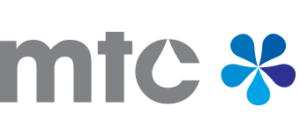Strategic procurement

I have been active in the field of procurement for over 20 years and over that time span new challenges have constantly emerged within the area. Numerous questions need to be thoroughly researched in order to incrementally build knowledge in the area of procurement. With the great amount of challenges that Swedish society faces, and with the collaboration between companies, organizations, academic institutions, and the MTC foundation, I can not think of a better environment to have a world-class research institute for procurement.
Mattias Hultheimer, founder of EEFSO and board member of MTC
Although many procurement organizations have come further in the transformation into strategic and value-adding functions, for many organizations there are still many challenges to overcome in order to become a well developed constant contributor of business development. Some key questions that organizations continue to face are:
- How should procurement organizations contribute to sustainable business in the best way?
- What role does digitalization and AI play in this?
- And how are procurement resources best allocated in order to gain maximum value-add for an organization?
Procurement should contribute to achieving a company’s strategic goals and objectives but to do so in practice requires overcoming many dilemmas. How to overcome these dilemmas and unlock procurement’s value was the central theme of a seminar held by EFFSO in collaboration with Stockholm School of Economics and MTC Stiftelsen, held by Frank Rozemeijer and Arjan van Weele.
Four themes were discussed with implications for practice:
- Procurement as a business function: Practice reveals many terms to relate to procurement activities. As a result the view and
expectations of procurement differs among managers and procurement professionals. What is the role of procurement, is it strategically relevant, and how to manage it? Are you a procurement hero or a business partner? - Category Sourcing: Category management is the corner stone for a successful business strategy. However, many sourcing
strategies seem nothing more than well-planned tactics. Procurement is assumed to manage a spend that relates to budgets managed by other disciplines. How to overcome possible intra organizational conflicts? How to develop effective sourcing strategies?
- Innovation sourcing: Outsourcing has made companies and government dependent on their suppliers and service providers. Today most innovations come from external partners, who are not always willing to share their best ideas and people with all of their customers. Innovation sourcing through procurement: is it possible?
- Procurement with Purpose: When outsourcing, companies and government have created over time complex, global supply chains, which created external dependencies and a massive carbon footprint. Should procurement change its global scope
and change its sustainability orientation towards circular sourcing? Is it able to do so?”

